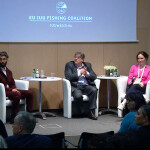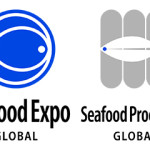With the Pacific Fishery Management Council's decision regarding the future of West Coast groundfish quotas due this week, opposing sides are quarreling about reports of paid testimonials and travel expenses for the council's public participation process.
The Coastal Jobs Coalition (CJC), which favors seafood processors gaining a share of the annual groundfish harvest, yesterday claimed that Environmental Defense Fund (EDF) of New York had admitted to offering payment to current and former elected officials from Oregon to attend the meeting and testify against them. West Coast groundfish species include whiting, sole and black cod, among others.
CJC is demanding EDF reveal who they have paid and how much to testify and travel to the Council's meeting this week in San Diego. EDF, which says most fishermen and environmental groups oppose allocating groundfish resources to processors, strongly denies the claims.
"In an effort to influence a critical vote of the [PFMC] this week in San Diego and to gain access to a valuable and large percentage of fishing quota, industrial seafood processors have created a shell entity called the 'Coastal Jobs Coalition,' which has attempted to discredit EDF and other advocates of a catch-share or Individual Fishing Quota (IFQ) program," EDF said in a statement.
The CJC says it "strongly supports legitimate public participation in the regulatory process by citizens and elected officials," but adds that it is "highly inappropriate for lobbying groups to offer payment of any kind in exchange for elected and government officials to testify at public meetings."
The amount of harvest quota allocated to processors is among the most contentious issues in the development of the new fisheries management plan.
CJC contends that a shared-market quota system would recognize that both processors and fishermen have invested in coastal jobs and capital equipment and could protect jobs in coastal communities, guarantee fair access to resources, stabilize prices for consumers and encourage environmental stewardship.
The council's decision this week will have a major impact on the economic viability of coastal communities and jobs, as well as the long-term health of the seafood industry, according to CJC. In June, the council voted in favor of allocating 20 percent of quota shares to processors and 80 percent to harvesters.





